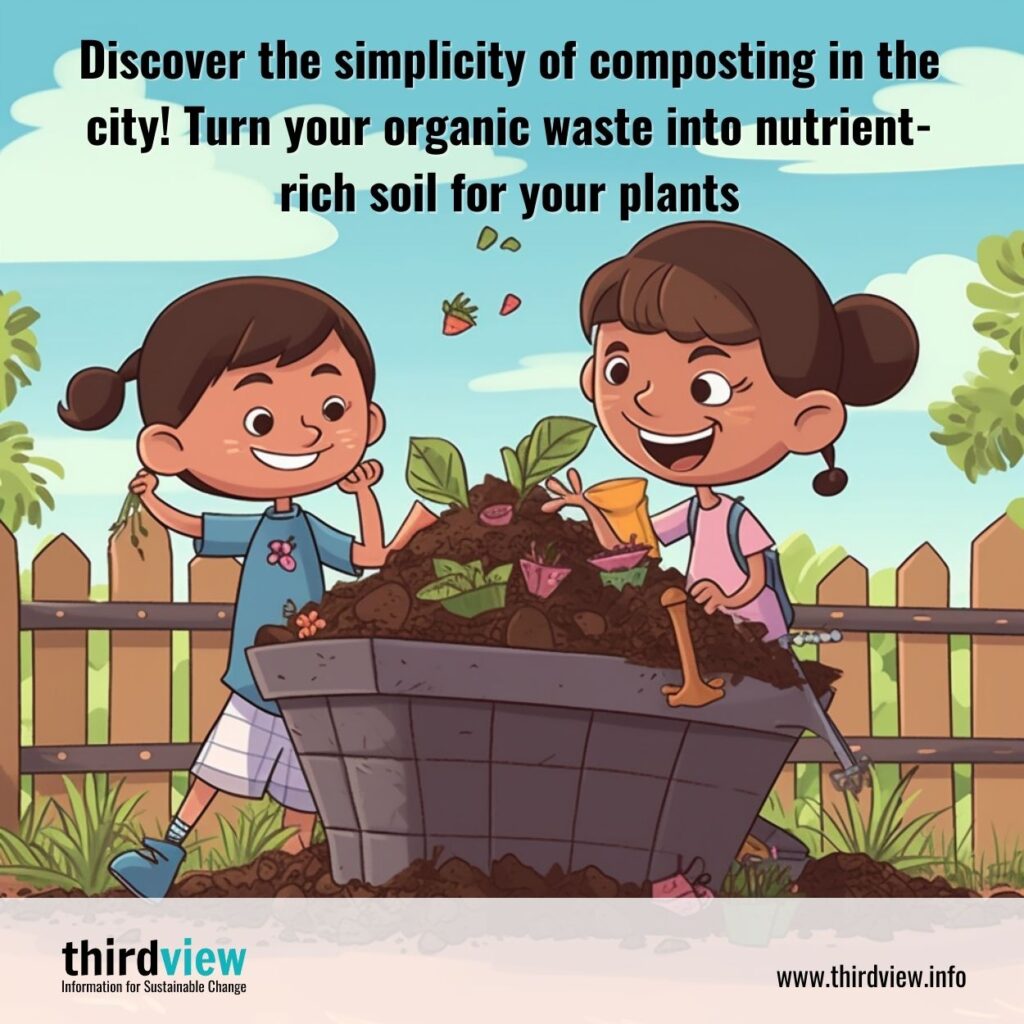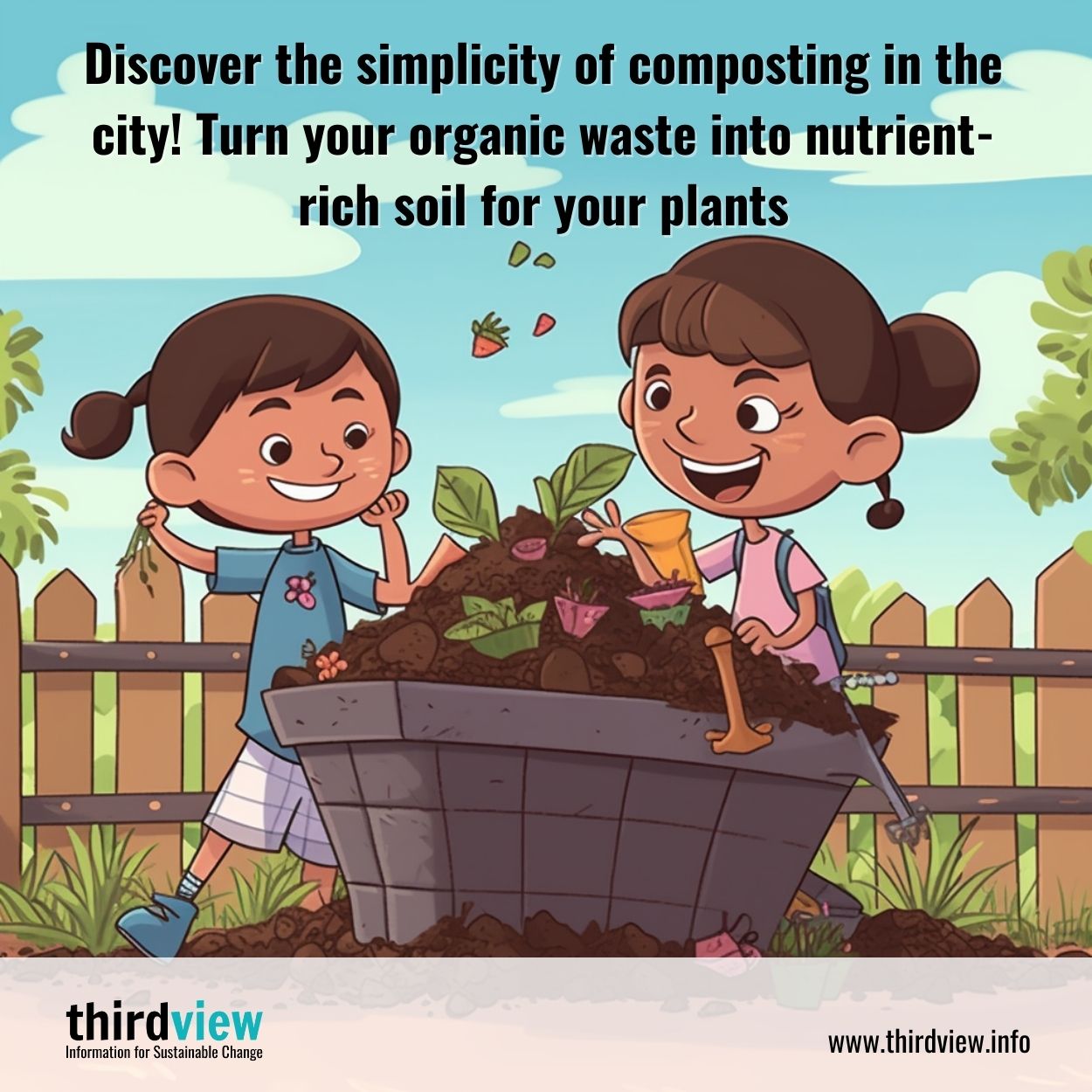Composting is a simple practice that has been utilized for generations to create healthy and nutritious soil. It involves turning organic materials such as food scraps and yard waste into compost, a nutrient-rich soil that can be used for gardening or farming. Despite its benefits, many city dwellers are often hesitant to start composting due to the perceived challenges associated with limited space and the potential for odours. However, composting in the city has never been easier, and with just a few simple tricks, anyone can start reaping the benefits of this eco-friendly practice.
Start Small
Composting doesn’t require a large space or a lot of organic materials to get started. You can begin on a small scale using everyday items such as an old ice cream bucket or a plastic container. These items can be placed under the sink, on the balcony, or near the back door and can easily accommodate food scraps, coffee grounds, and yard waste. Start with the items you have on hand and gradually build up to larger containers as your composting system evolves.
Choose the Right System
When venturing into composting, city dwellers can opt for different systems that suit their lifestyle and space requirements. One of the most popular systems is the worm bin which utilizes red worms to convert food waste into compost. This system can fit easily under a coffee table, and the harvested compost can be used as a nutrient source for house plants. Another system to consider is a tumbler composting bin that allows for easy mixing and faster composting. Whichever system you choose, make sure to select the right size and type suitable for your space.
Don’t Fear the Smell
One of the most common misconceptions associated with composting is the fear of odours that may come with it. However, with the right composting system in place, this shouldn’t be an issue. Worm bins, for example, do not emit any unpleasant smells, while tumbler bins come with a lid to contain odours. If you’re still concerned about odour, consider using carbon-rich materials such as shredded paper and leaves to balance out the nitrogen-rich food scraps, preventing the growth of unpleasant smells.
Educate Yourself
Learning about the composting process is an essential step in this eco-friendly practice. There are many online resources, books, and classes available for those interested in composting. Through education, you can understand what to compost, what to avoid, and how to keep a healthy and thriving composting system. Additionally, by joining local gardening organizations or community composting sites, you can learn from experienced composters and get involved in the larger community composting efforts.
Enjoy the Benefits
The ultimate reward of composting in the city is healthy soil that can be used for gardening, potting, or farming. Compost provides natural nutrients, aerates soil, improves water retention, and promotes healthy plant growth. Incorporating compost in your gardening routine can save on water usage and reduce the need for chemical fertilizers, ultimately leading to an eco-friendlier and more sustainable lifestyle.
Composting in the city is a simple practice that provides many benefits. Starting small with the right system, educating oneself about the process, and not fearing the smell are crucial steps for successful composting. By composting, city dwellers can make a difference in reducing their carbon footprint, and enjoy healthier plants, gardens, and soils. Don’t hesitate to start composting, even in limited urban environments – it’s easier than you think!


